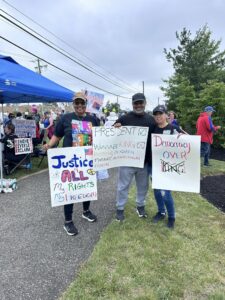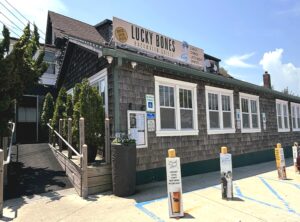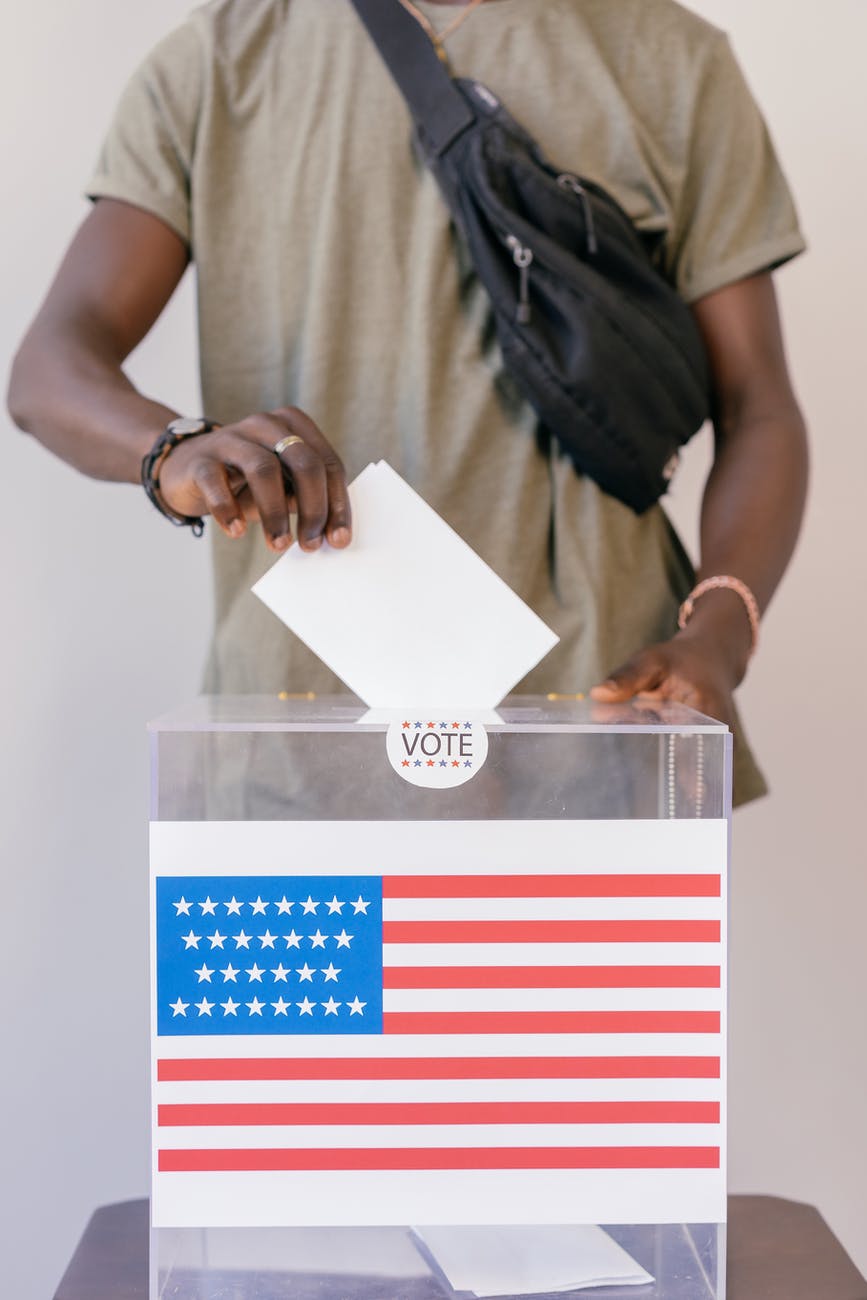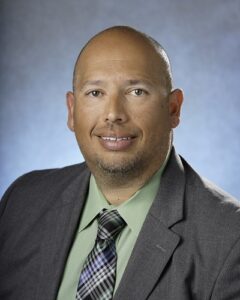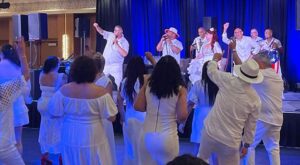Diverse Voices: June Deponte Sernak – Native American History Tells Rich Story of Rights Movements

Dr. June Deponte Sernak. Photo courtesy of Alice Paul Institute.
By Shelja Touri | AC JosepH Media
DELANCO — In July, the Alice Paul Institute appointed Dr. June Deponte Sernak as chair of its board of directors, only the second woman of color and the first person descended from indigenous people to serve in this role.
The Alice Paul Institute is a national organization committed to having a positive impact in the ongoing, intersectional struggle for gender equality.
Sernak is the Statewide Diversity Consultant for the Center for Family Services, located in Voorhees. There, she provides consultations on cultural competence planning and implementation.
She is responsible for researching and advising on diversity and inclusion issues and creating programs, trainings, and conferences throughout the state of New Jersey.
Her previous work experience includes serving as dean of lifelong learning/co-chair of the President’s Advisory Council on Diversity, Equity and Senior Adjunct Professor at Rowan College at Burlington County in Mount Laurel, executive director at American Red Cross, in Pennsauken, and many years of sales and marketing in the telecommunications industry.
Read Shelja Touri’s commentary on Native American Heritage Month HERE
Sernak talked with Front Runner Diverse Voices on Tribal citizenship, Native American history and her own life and experiences.
Front Runner Diverse Voices: Which Tribal citizenship do you hold and can you share more about the tribal, culture and history?

Dr. June Deponte Sernak: My ancestors are from the Powhatan Renape Nation migrating from Virginia and Delaware in the late 1800s. Descendants from the Nanticoke’s that neighbored the Lenni-Lenapes. My paternal grandmother had 11 siblings that carried their traditions to the Rankokus Indian Center in Burlington County which served as a gathering place for Pow Wows and education sessions. My grandparents lived in Haddonfield and owned Glady’s Market on Kresson Road named after my grandmother, Gladys Carney Harmon. They were very spiritual and respectful of the land where they brought produce and plants from the farms in South Jersey to serve at the market. My grandfather would travel to farms where he could tell the crop by the soil in the baskets. Their work ethic was passed down to their children and grandchildren. They didn’t believe in having alcohol or gambling, even having a deck of cards in the house was prohibited.
Traditions of providing sustenance from the clan mothers of the tribe seemed evident from providing not only for our family but the joy of her customers that came from far and near to the market. My father worked at the market with his siblings and brought produce for my mom to bake items like blueberry buckle and strawberry shortcake, all from scratch. Religion and music also are very traditional as they attended services in Delair and sang in the choir. usually, the piano in my grandparent’s living room facing her enormous, luxuriously decorated Christmas tree. The narrative of our family was written by Chief Roy Crazy Horse in the book, Morrisville: A Hidden Community, documenting the familial timeline and migration to New Jersey.
The history of Native American tribes from the 1800s is not shared in schools or in textbooks. Many families migrated to other areas for fear of their children being removed to be sent to boarding schools to make them “civilized” by stripping their language and culture. They were forbidden to use their native language or participate in rituals and even had their names changed to acclimate to western culture. Systemic racism and forced migration were noted by the Dawes Act of 1887 that reallotted Native land or the 1902 Bureau of Indian Affairs “haircut order” designed to prohibit rations unless hair was cut to assimilate to western culture. Those that returned to their homes tried to reintegrate but lost connection with their family bonds. Unfortunately, today we still see large numbers of Indigenous Women still removed from their native homes causing an outcry for a movement called MMIW (Murdered and Missing Indigenous Women) to provide awareness to the epidemic of violence against women and girls worldwide. Creating awareness and safe spaces is needed to make a change and protect our members.
Front Runner Diverse Voices: Why do you think Native American History and current presence are important to share? Why/ why not?
Dr. June Deponte Sernak: Native American History is important to share because it is the foundation of many movements and teachings. The women’s suffragist movement began by the inspiration for women’s rights and equality which was first derived in Iroquois territory in 1848 by suffragist leaders such as Elizabeth Cady Stanton, Matilda Joslyn Gage, Lucretia Mott and Susan B. Anthony who was a mentor to New Jersey’s Alice Paul who continued with her work in the ERA.
Many institutions are using Native American findings as their own such as Maslow’s Hierarchy of Needs. Maslow visited the Blackfoot tribe and discussed this methodology yet inverted it and used it as his own teachings. The actual premise is that we begin with self-actualization and work for the good of the whole to have our needs met. Maslow’s version is an individualistic approach that limits the success of the clan belief system. It suggests that once our material comforts are met we reach self-actualization which is the opposite of the original hierarchy.
It is also critical to stop idealizing the Indigenous culture through an inaccurate lens. Pocahontas, from the Powhatan tribe, has been romanticized with little regard for the fact that she was underage as the animated tale told of a romantic fairytale. Honoring true history teaches us to learn from the past and continue the same bias in the future. I was told as a teenager by a guidance counselor that I wasn’t college material and should apply for a minority work program and that I qualified for government cheese. Those microaggressions and biases played a critical role in my educational endeavors and career choices to remove the stigma associated with my ethnicity.
Front Runner Diverse Voices: Do you think there is enough education and knowledge shared about this? Why or why not?
Dr. June Deponte Sernak: There is not enough education because many people are unaware that there are Native American Tribes still thriving. We have three tribes in New Jersey including the Nanticoke Lenni-Lenape, Powhatan Renape and Ramapough Tribes with 20,000+ New Jersey members. We have state acknowledgment however still not federally recognized which prevents our tribes from resources and financial services that would allow us to continue our traditions. Many Native Americans assimilated into the census that was void of a narrative for their heritage. Today, many tribal members are still misidentified impacting their lifestyles, healthcare and mental health.
Native tribes also acknowledge a term known as Two-Spirit encompassing identity that is fluid by cultural, spirituality, sex and gender. The Two-Spirit ad LGBTQ+ identities have had tremendous impact on the current colonized beliefs and continue to acknowledge third genders in many tribes. Understanding this knowledge gives us an opportunity to honor and educate by sharing the legacy of our ancestors whose stories are rarely shared.
Front Runner Diverse Voices: How has your own racial experience impacted on how you work today in addressing disparities today?
Dr. June Deponte Sernak: My racial experience was shaped by biases and discrimination in several of the organizations I have worked in throughout my career. In early days, I was often the only woman as well as woman of color in many meetings, I was encouraged to assimilate in appearance and language to fit into corporate culture. My last role in higher education had many disparities from faculty representation lacking diversity to low graduation rates for male students of color to no formal DEI Initiatives for students, staff or community members. Personally, many of my contributions were either not acknowledged or presented by colleagues as their own undermining my education and position including creating an inaugural Advisory Council for DEI.
Even isolation tactics were used to alienate my position by moving my office to a deserted annex away from my staff. There were biases and microaggressions used to stifle and limit not only my advancement but many BIPOC women, many of whom left for opportunities in other organizations. Currently, working in a diverse environment with support from senior leadership has created a culture and climate to thrive as well as be appreciated. My experiences played a large role in writing the final chapters of my doctoral dissertation researching the impacts of racism on mental health and trauma. Overall, it has made me a stronger leader and ally to always raise my hand and advocate for those not at the table.
Front Runner Diverse Voices: What Does Columbus Day Mean to you?
Dr. June Deponte Sernak: Columbus is a small portion of the history of how our nation was discovered. History reads like the most dramatic of stories with heroes and villains, greed and intrigue as well as tales of resilience and survival. Columbus Day is a day of remembrance to all of those who were stifled to not live their authentic lives and continue their spiritual journeys. It reminds us that we have a long way to go with equality and acknowledgment for our contribution to history.
Front Runner Diverse Voices: Do you think that NJ should recognize Indigenous people Day in place of Columbus Day? Why or Why not?
Dr. June Deponte Sernak: I believe that New Jersey should recognize Indigenous People Day to honor the three tribes in the state and their 22,000+ tribal members. We need Federal recognition and an opportunity to continue our rituals and observances. The New Jersey Commission on Native American Affairs is made up of tribal members and community members providing services to our tribes that may otherwise go unserved. From Covid vaccination deployment to environmental protection on lands with safe water sources to land acknowledgments, it is important to share these stories and heal historic and intergenerational trauma of our ancestors.
Front Runner Diverse Voices: Is there anything else you would like to add?
Dr. June Deponte Sernak: I invite communities and individuals to add tribal traditions to their family observances and keep the rituals alive for generations to come. Teaching respect for our planet and spiritual healing is a strong step to stronger mental health and higher cultural intelligence.
Follow Us Today On:
Subscribe to FRNJ EXTRA premium content newsletter for exclusive information on this event and other premium content, courtesy of Front Runner New Jersey.com.
Note from AC JosepH Media: If you like this story and others posted on Front Runner New Jersey.com, lend us a hand so we can keep producing articles like these for New Jersey and the world to see. Click on SUPPORT FRNJ and make a contribution that will do directly in making more stories like this available. Thank you for reading.


